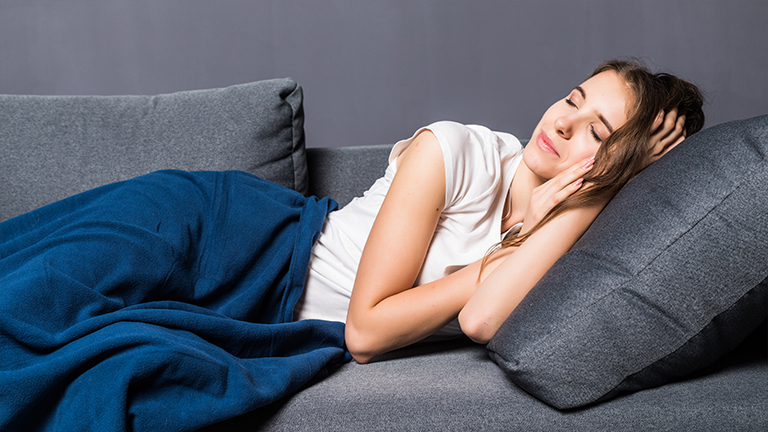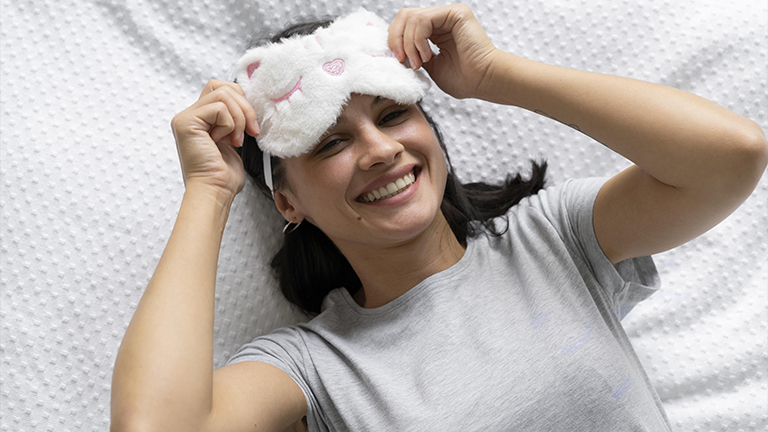Sleep hygiene refers to a set of healthy sleep habits that help you fall asleep faster, stay asleep longer, and wake up feeling refreshed. Just as personal hygiene keeps your body clean and healthy, sleep hygiene ensures that your nightly rest supports your physical, mental, and emotional well-being.
Unfortunately, many people in the USA, UK, and Canada struggle with poor sleep quality due to busy lifestyles, excessive screen time, irregular schedules, and high stress levels. By practicing good sleep hygiene, you can improve your sleep quality, regulate your circadian rhythm, and prevent common sleep disorders.
Why Sleep Hygiene Matters
Quality sleep is not a luxury—it’s a necessity. Research shows that good sleep hygiene can improve memory, focus, immune function, and emotional stability. On the other hand, poor sleep habits are linked to higher risks of obesity, heart disease, anxiety, and depression.
The Link Between Sleep Hygiene and Overall Health
When you follow healthy sleep practices, your body experiences proper restorative processes during deep sleep and REM cycles. This helps repair muscles, regulate hormones, and boost brain function.
How Poor Sleep Habits Affect Mental and Physical Well-Being
Lack of proper sleep hygiene can lead to:
- Daytime fatigue and irritability
- Difficulty concentrating and making decisions
- Weakened immune system
- Increased risk of chronic illnesses
Key Principles of Good Sleep Hygiene
Establishing consistent and healthy sleep habits is the foundation of sleep hygiene.
1. Consistent Sleep Schedule
Go to bed and wake up at the same time every day, including weekends. This trains your body’s internal clock (circadian rhythm) for better sleep.
2. Creating a Relaxing Bedtime Routine
Spend 30–60 minutes before bed doing calming activities such as reading, meditating, or taking a warm bath. This signals to your brain that it’s time to rest.
Optimizing Your Sleep Environment
Your bedroom plays a huge role in sleep quality.
Ideal Room Temperature, Lighting, and Noise Levels
- Keep your bedroom cool (around 65°F / 18°C).
- Block out excessive light with blackout curtains.
- Use white noise machines or earplugs to mask disruptive sounds.
Choosing the Right Mattress and Pillows
Invest in a supportive mattress and pillows that match your sleeping style. The right bedding can reduce discomfort, prevent back pain, and improve overall sleep comfort.
Daily Habits That Improve Sleep Hygiene
Limiting Caffeine and Alcohol Before Bed
Avoid caffeine at least 6 hours before bedtime, and limit alcohol intake, as it disrupts sleep cycles.
The Impact of Exercise on Sleep Quality
Regular physical activity can help you fall asleep faster and enjoy deeper sleep. Aim for at least 30 minutes of moderate exercise daily, but avoid vigorous workouts right before bed.
Digital Detox for Better Sleep
Reducing Blue Light Exposure from Screens
Blue light from phones, tablets, and computers delays melatonin production, making it harder to fall asleep.
Setting a Technology Curfew
Stop using electronic devices at least 1 hour before bed to allow your brain to wind down naturally.
Common Sleep Hygiene Mistakes to Avoid
- Irregular sleep patterns disrupt circadian rhythms.
- Eating heavy meals before bedtime can cause indigestion and discomfort.
- Napping too long during the day may interfere with nighttime sleep.
Sleep Hygiene for Different Age Groups
Adults
Maintain a consistent sleep schedule and create a calm bedtime environment.
Teens
Encourage a set bedtime, limit late-night screen time, and avoid energy drinks.
Seniors
Consider light exposure during the day to maintain circadian rhythm and avoid excessive daytime naps.
When to Seek Professional Help
Signs of Chronic Sleep Disorders
If you regularly experience insomnia, excessive daytime sleepiness, loud snoring, or frequent waking during the night, it may be a sign of a deeper issue.
When Poor Sleep Hygiene Indicates a Deeper Issue
Persistent sleep problems despite practicing good sleep hygiene could indicate sleep apnea, restless leg syndrome, or other sleep disorders—consult a sleep specialist.
Final Thoughts
Practicing good sleep hygiene is one of the most effective, natural ways to improve your overall health and quality of life. By establishing a consistent sleep schedule, creating a peaceful bedroom environment, and adopting healthy daily habits, you can enjoy better rest, more energy, and improved mental clarity.
Better sleep starts with better habits—start making small changes today, and your body and mind will thank you.


